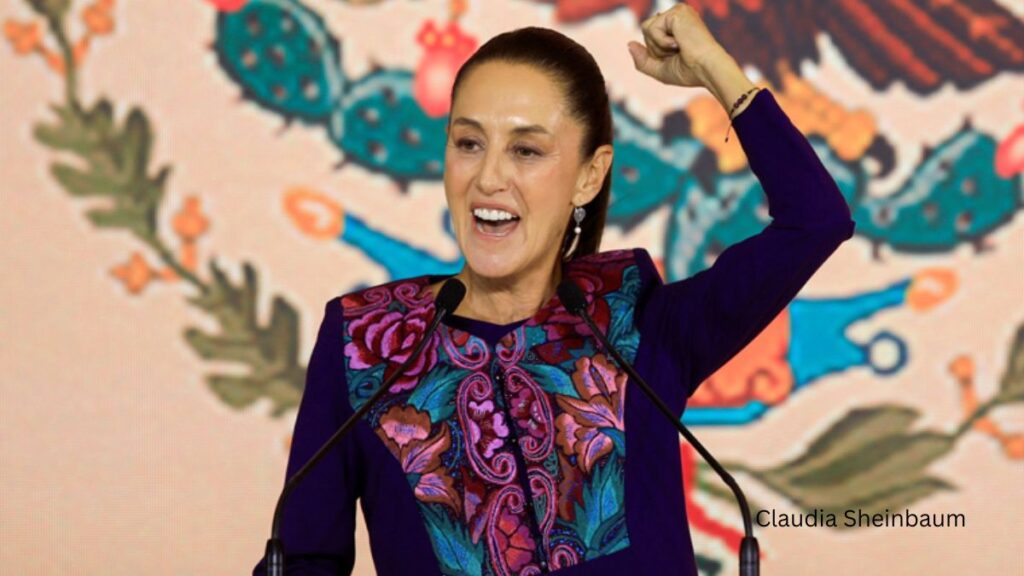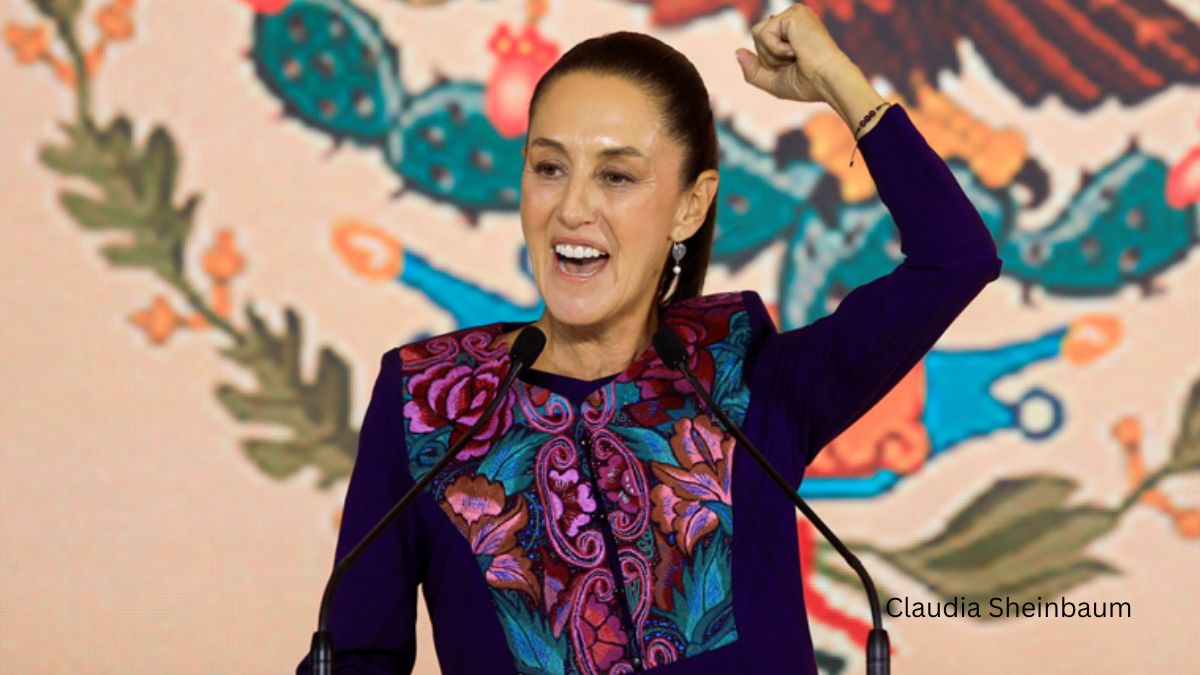
Claudia Sheinbaum, a distinguished climate scientist and former mayor of Mexico City, secured a historic victory in Mexico’s presidential elections on Sunday. Her triumph marks a significant milestone as she becomes the first woman to be elected president of Mexico. Preliminary results indicated that Claudia Sheinbaum, aged 61, won by a landslide in what the authorities described as the largest election in Mexico’s history, characterized by the highest voter turnout and the most seats contested. This landmark vote was notable not only for Sheinbaum’s win but also because it featured two women vying to lead one of the hemisphere’s largest nations.
Search
Recent Posts:
- OpenAI Brings ChatGPT to be used in WhatsApp: Here’s How It Works and What You Can Do To Use It.
- Realme 14x 5G: A Budget Smartphone With Premium Features.
- Exploring Apple Genmoji: A New Era of Custom Emoji Creation.
- 2024 United States Presidential Election: Donald Trump Declares Victory in 2024 Presidential Election
- Chancellor Olaf Scholz’s Visit to India: Advancing Indo-German Cooperation on Defense, Trade, and Regional Stability.
A Testament to AMLO’s Enduring Influence and Controversial Legacy
Claudia Sheinbaum, representing the leftist political spectrum, campaigned on a platform promising to continue the legacy of Mexico’s current president, Andres Manuel Lopez Obrador, who is also her mentor. Many analysts and voters viewed the election as a referendum on Lopez Obrador’s leadership, and Sheinbaum’s victory is seen as a clear endorsement of his policies and the party he established. Lopez Obrador, often referred to by his initials AMLO, has profoundly reshaped the Mexican political landscape.
During his tenure, millions of Mexicans were lifted out of poverty, and the minimum wage doubled, which significantly improved the living standards for many. However, his presidency has not been without controversy. AMLO has been a deeply polarizing figure, facing criticism for his failure to control rampant cartel violence, his handling of the nation’s health system, and his persistent undermining of democratic institutions. Despite these criticisms, Lopez Obrador remains widely popular, and his enduring appeal was a crucial factor in Sheinbaum’s election success.
Mexico’s First Female President Pledges Democratic Commitment and Leadership Continuity
With 76.1% of the polling place tallies counted by Mexico’s electoral authority, Claudia Sheinbaum had garnered 58.6% of the vote. Her nearest rival, Xochitl Galvez, an entrepreneur and former senator who ran on a ticket with a coalition of opposition parties, secured 28.3%. Meanwhile, longshot candidate Jorge Alvarez Maynez trailed with 10.5% of the vote. Projections also indicated that Sheinbaum’s Morena party would maintain its majority in both chambers of Congress. In her victory speech, Claudia Sheinbaum pledged to work on behalf of all Mexicans, reaffirmed her party’s commitment to democracy, and celebrated her groundbreaking ascension to the nation’s highest office. “For the first time in 200 years of the republic, I will become the first female president of Mexico,” she declared to her supporters.
Sheinbaum’s extensive experience and academic background have significantly contributed to her political rise. She holds a doctorate in energy engineering and was a member of a UN panel of climate scientists that received the Nobel Peace Prize. Her tenure as the mayor of Mexico City further showcased her administrative capabilities. Known as a demanding boss with a reserved demeanor, Claudia Sheinbaum has advanced through the political ranks by aligning herself closely with Lopez Obrador, leading some to perceive her as a continuation of his leadership rather than an independent figure.
Claudia Sheinbaum: Breaking Barriers as Mexico’s First Female and Jewish President
In addition to being the first female president, Sheinbaum’s election is also notable as Mexico elected its first Jewish president, a remarkable achievement in a country with one of the world’s largest Catholic populations. Although Sheinbaum, 61, seldom discusses her Jewish heritage, she acknowledges her distant relationship with Mexico’s Jewish community, which dates back to the country’s early history and today numbers about 59,000 in a population of 130 million. “Of course I know where I come from, but my parents were atheists,” she stated in 2020. Both of her parents were leftists and involved in the sciences, which influenced her upbringing and career.
Despite downplaying her Jewish heritage, Sheinbaum’s background has not gone unnoticed. After emerging as a presidential contender last year, she faced “birther” attacks questioning her birthplace and Mexican nationality. Such attacks reflect the broader challenges she faces in a nation with deep-rooted prejudices. Since the Gaza conflict erupted last year, Sheinbaum has condemned attacks on civilians, called for a ceasefire, and expressed support for a two-state solution. It remains to be seen how she will navigate Mexico’s position on this and other international issues as president, given the growing contentiousness surrounding foreign policy in the country.
Claudia Sheinbaum’s election represents a significant moment in Mexico’s history, not only breaking gender barriers but also signaling a continued shift in the nation’s political dynamics. Her presidency is expected to build on the transformative but divisive legacy of Lopez Obrador while addressing the complex challenges that lie ahead. As Mexico’s first female and Jewish president, Sheinbaum’s tenure will undoubtedly be closely watched both domestically and internationally.
To read more topics, please visit: https://insightfulbharat.com






